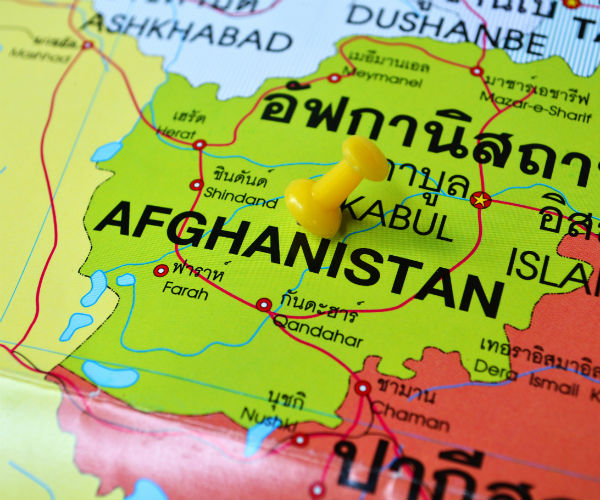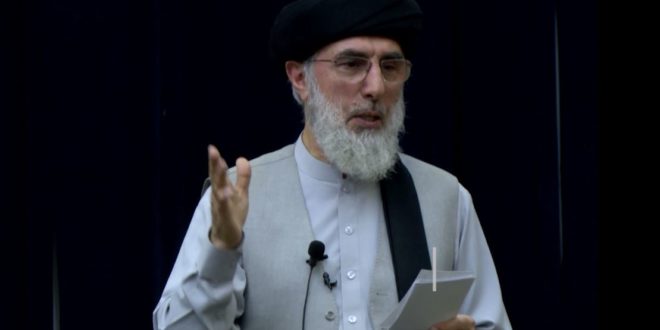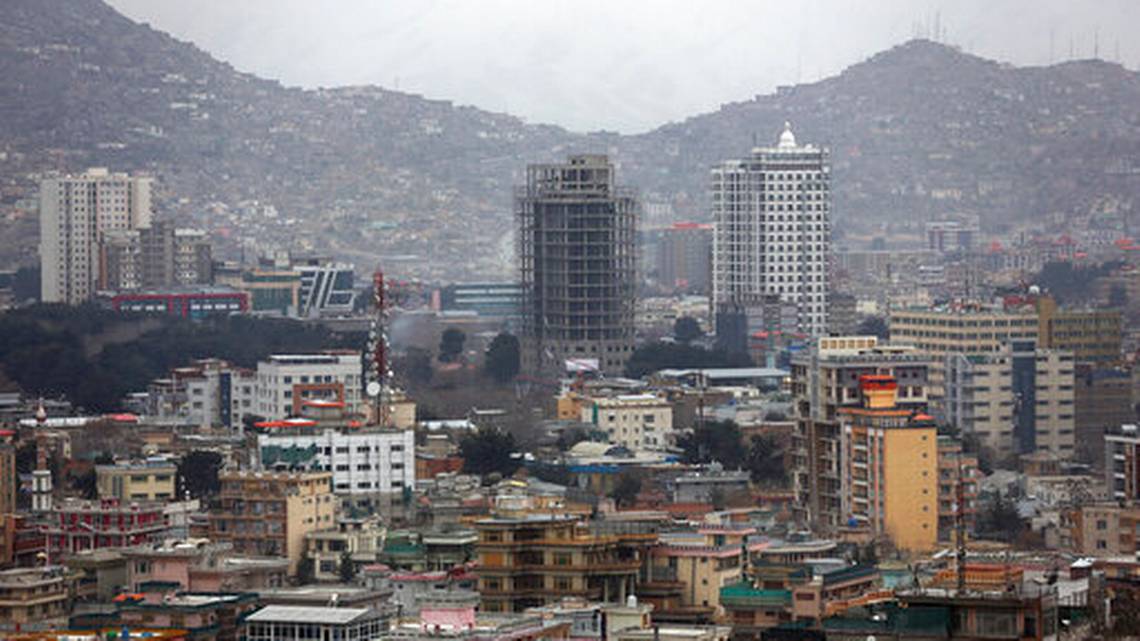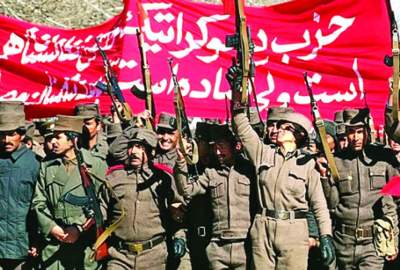The Trump administration's emerging deal with the Taliban has the potential to bring greater stability to Afghanistan, after an 18-year inconclusive war in that country.
Publish dateSaturday 3 August 2019 - 04:41
Story Code : 189388
Or it could reignite the Afghan civil war, emboldening terrorist groups and plunging the nation into another decade of turmoil — which might then force the United States to return to the battlefield in large numbers.
That is, after all, what happened after the United States withdrew too quickly from Iraq in 2011. It all depends on how it is handled. The key must be a political settlement between the Taliban and the Afghan government and not the rapid withdrawal of U.S troops.
The president deserves credit for having authorized the negotiations in Doha between a special envoy, Zalmay Khalilzad, and the Taliban. The next step is for the talks to broaden to involve the Afghan government. The end result would be a national unity government that includes both the current Afghan government and the Taliban.
It may sound far-fetched, but it could be achieved in phases, over time.
The crucial issue for Washington is to ensure that it does not make concessions that are hard to reverse — such as drawing down troops — while the Taliban makes paper commitments that it can easily violate.
The former ambassador to Afghanistan, Ryan Crocker, worries that we may be watching a replay of Vietnam, in which the United States got commitments from North Vietnam in return for its withdrawal. But once U.S. troops were gone, North Vietnam reneged on those commitments and invaded South Vietnam.
The most effective way to ensure this does not happen in Afghanistan is for Washington to delay the troop drawdowns until tangible gains have been made in terms of political power sharing and national reconciliation.
It can push the Taliban to keep its promises by formally bringing neighboring powers such as China and Iran into the discussions.
The United States has faced this exit-strategy problem every time it has waged a war against a guerrilla force. Henry Kissinger described the dilemma memorably in a Foreign Affairs essay written prior to his appointment as national security adviser in 1969.
The United States seeks a positive goal: to gain territory and establish effective government. The guerrillas seek a negative goal: disruption. While the United States pursues a military strategy, the guerrillas have a psychological strategy: to exhaust America's willpower. America loses by not winning; the guerrillas win by not losing.
The Taliban has gone one step further than a guerrilla operation, having established its own governance independent from the Afghan national government in some areas. But the group's core strategy appears to be to wait out the United States.
And Trump, for his part, too often confesses that he has lost any appetite to stay on. If the deal between the Taliban and Washington is to hold, Trump must signal that he would send back the troops if the Taliban breaks their end of the deal.
As significant is the possibility that there is a change in Pakistan's attitude toward Afghanistan. Pakistan's support for the Taliban, giving it a haven across the border and much more, has been crucial to the Taliban's strength.
The new Pakistani government reportedly helped facilitate the talks between the United States and the Taliban. The prime minister, Imran Khan, has stated that his country no longer seeks to maintain "strategic depth" in the region by keeping Afghanistan in permanent chaos. If he means it, and if he can control the Pakistani military — a big caveat — this marks a positive shift for the whole region.
"Trust but verify," Ronald Reagan said, and that should be the mantra for these negotiations. Everyone will seek gains from the United States upfront in return for promises to be fulfilled later.
Washington should not be fooled.
The United States has achieved much in Afghanistan. The country is in a decent place after 40 years of civil war and Taliban rule. One example: There were about 1 million Afghan children in school under the Taliban; today, there are more than 9 million.
The terrorist organization that the Taliban harbored, al-Qaida, has been severely weakened. The costs for America today — 14,000 troops — are not nearly what they once were.
The United States could cut that number to 8,000 to 9,000 under the new deal while still maintaining order in Afghanistan and fighting terrorism. But first, Washington needs to make sure it doesn't just end the war but also wins the peace.
That is, after all, what happened after the United States withdrew too quickly from Iraq in 2011. It all depends on how it is handled. The key must be a political settlement between the Taliban and the Afghan government and not the rapid withdrawal of U.S troops.
The president deserves credit for having authorized the negotiations in Doha between a special envoy, Zalmay Khalilzad, and the Taliban. The next step is for the talks to broaden to involve the Afghan government. The end result would be a national unity government that includes both the current Afghan government and the Taliban.
It may sound far-fetched, but it could be achieved in phases, over time.
The crucial issue for Washington is to ensure that it does not make concessions that are hard to reverse — such as drawing down troops — while the Taliban makes paper commitments that it can easily violate.
The former ambassador to Afghanistan, Ryan Crocker, worries that we may be watching a replay of Vietnam, in which the United States got commitments from North Vietnam in return for its withdrawal. But once U.S. troops were gone, North Vietnam reneged on those commitments and invaded South Vietnam.
The most effective way to ensure this does not happen in Afghanistan is for Washington to delay the troop drawdowns until tangible gains have been made in terms of political power sharing and national reconciliation.
It can push the Taliban to keep its promises by formally bringing neighboring powers such as China and Iran into the discussions.
The United States has faced this exit-strategy problem every time it has waged a war against a guerrilla force. Henry Kissinger described the dilemma memorably in a Foreign Affairs essay written prior to his appointment as national security adviser in 1969.
The United States seeks a positive goal: to gain territory and establish effective government. The guerrillas seek a negative goal: disruption. While the United States pursues a military strategy, the guerrillas have a psychological strategy: to exhaust America's willpower. America loses by not winning; the guerrillas win by not losing.
The Taliban has gone one step further than a guerrilla operation, having established its own governance independent from the Afghan national government in some areas. But the group's core strategy appears to be to wait out the United States.
And Trump, for his part, too often confesses that he has lost any appetite to stay on. If the deal between the Taliban and Washington is to hold, Trump must signal that he would send back the troops if the Taliban breaks their end of the deal.
As significant is the possibility that there is a change in Pakistan's attitude toward Afghanistan. Pakistan's support for the Taliban, giving it a haven across the border and much more, has been crucial to the Taliban's strength.
The new Pakistani government reportedly helped facilitate the talks between the United States and the Taliban. The prime minister, Imran Khan, has stated that his country no longer seeks to maintain "strategic depth" in the region by keeping Afghanistan in permanent chaos. If he means it, and if he can control the Pakistani military — a big caveat — this marks a positive shift for the whole region.
"Trust but verify," Ronald Reagan said, and that should be the mantra for these negotiations. Everyone will seek gains from the United States upfront in return for promises to be fulfilled later.
Washington should not be fooled.
The United States has achieved much in Afghanistan. The country is in a decent place after 40 years of civil war and Taliban rule. One example: There were about 1 million Afghan children in school under the Taliban; today, there are more than 9 million.
The terrorist organization that the Taliban harbored, al-Qaida, has been severely weakened. The costs for America today — 14,000 troops — are not nearly what they once were.
The United States could cut that number to 8,000 to 9,000 under the new deal while still maintaining order in Afghanistan and fighting terrorism. But first, Washington needs to make sure it doesn't just end the war but also wins the peace.
avapress.com/vdcg7y9q7ak97w4.5jra.html
Tags
Top hits












